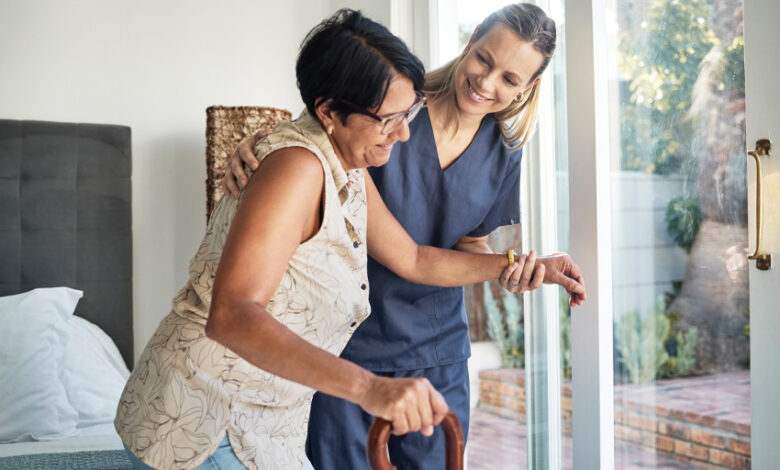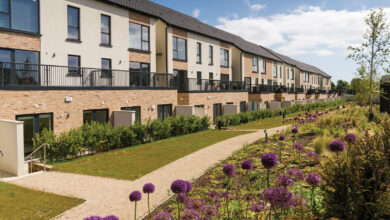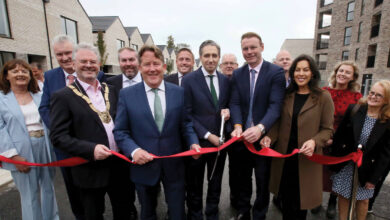Elderly homes scheme moves ahead following pilot success

The Department of Health has concluded a series of pilot projects for the rollout of the Healthy Age Friendly Homes initiative and will now roll out the next phase of the plan.
Launched in 2021, by Minister of State for Mental Health and Older People Mary Butler TD and former Minister of State at the Department of Housing, Local Government and Heritage Peter Burke TD, the Healthy Age Friendly Homes Programme is delivered by local government through the Age Friendly Ireland Shared Service hosted by Meath County Council.
The initiative is aimed at supporting older adults to remain living in their own homes and communities. The first phase of the scheme concluded in April 2023, and Minister of State for Mental Health and Older People Mary Butler TD has announced that the completion of the pilot programme will, under funding secured in Budget 2023, enable the expansion of the Healthy Age Friendly Homes Programme to all of the State’s 31 local authorities.
Funded by Sláintecare for its pilot phase in 2021, the programme has been operational in nine local authority sites across the State. These are: Dublin City Council; South Dublin County Council; Fingal County Council; Tipperary County Council; Cork County Council; Longford County Council; Westmeath County Council; Galway County and City Council; and Limerick County and City Council.
The pilot phase of the programme had the objective of reaching “up to” 4,500 homes across nine local authority areas until the conclusion of this phase in April 2023. These older people were identified by decision-makers as having “significant social care needs” and were seen as “at risk of hospitalisation or premature entry into long-term residential care”.
Over the duration of the pilot, from May 2021 to April 2023, the Healthy Age Friendly Homes Programme had:
- 2,911 referrals of older people into the programme;
- 3,500 home visits by local coordinators; and
- 6,250 supports provided.
Strategic alignment
The objective of the programme is to target supports to improve the living conditions of older people and enhance access to continued health and social care and tailored community supports. The local coordinator role has been designed to support older people and their families to navigate the services by proactively linking them to the appropriate supports and services.
The Department of Health outlines how the Healthy Age Friendly Homes initiative is strategically aligned with a number of government policies, including:
- the Programme for Government (universal healthcare, climate action);
- the shared Department of Health and Department of Housing policy statement Housing Options for our Ageing Population;
- Sláintecare;
- Housing for All;
- the Healthy Communities Programme; and
- the World Health Organization’s Housing and Health Guidelines.
Case study
The Department provides a case study which demonstrates the impact of the initiative. ‘Geraldine’, a pseudonym for a 65-year-old woman living alone in her own home in an urban area, was referred into the programme by a HSE occupational therapist in her primary care team.
Geraldine has complex health issues, suffering from rheumatoid arthritis severely affecting her mobility. Her medical conditions restricted her from using the stairs in her home, meaning she had a bed in her sitting room and used a commode.
After the Healthy Age Friendly Homes initiative was launched, a local coordinator visited Geraldine’s home and carried out a needs assessment, putting an individualised support plan and actions in place:
- they assisted her in making an application for a Housing Adaptation Grant for a stair lift and an accessible shower in her bathroom. The application grant was approved, and the works have now been completed;
- other supports provided to Geraldine include assistance in making an application under the Department of the Environment, Climate and Communications local authority bin waiver scheme; liaising with the local care and repair team to have two smoke alarms and a carbon monoxide alarm fitted free of charge; submitting an application for the Senior Alert Scheme for a monitored personal alarm through the family resource centre; submitting an application for the State pension which was approved and will be received once Geraldine turns 66; and installation of a monitored pendant alarm; and
- Geraldine’s accessible bathroom was completed and her stairlift installed allowing Geraldine access to her bedroom and use of the bathroom within her own home for the first time in over two years. She also feels safer in her home with the use of a fall detector and alarms.
Expressing her satisfaction with the service provided by the local coordinator, Geraldine says: “Before the coordinator visited me, I felt I was losing my self-worth. If people were made aware of the help provided, they would be better able to survive.”
Although challenges remain in areas such as maximising accessibility to the scheme, Minister of State Mary Butler TD has said that she is satisfied with the initial outcome of the scheme and has pressed ahead for its continuation.
The Waterford TD says: “This is a really important initiative that focuses on the wider determinants of health for our older people, acknowledging that good health and wellbeing goes beyond just healthcare. The report published last year on the pilot showed the programme is having a positive impact on the quality of life for our older people and providing trusted, expert advice for a range of issues.”





